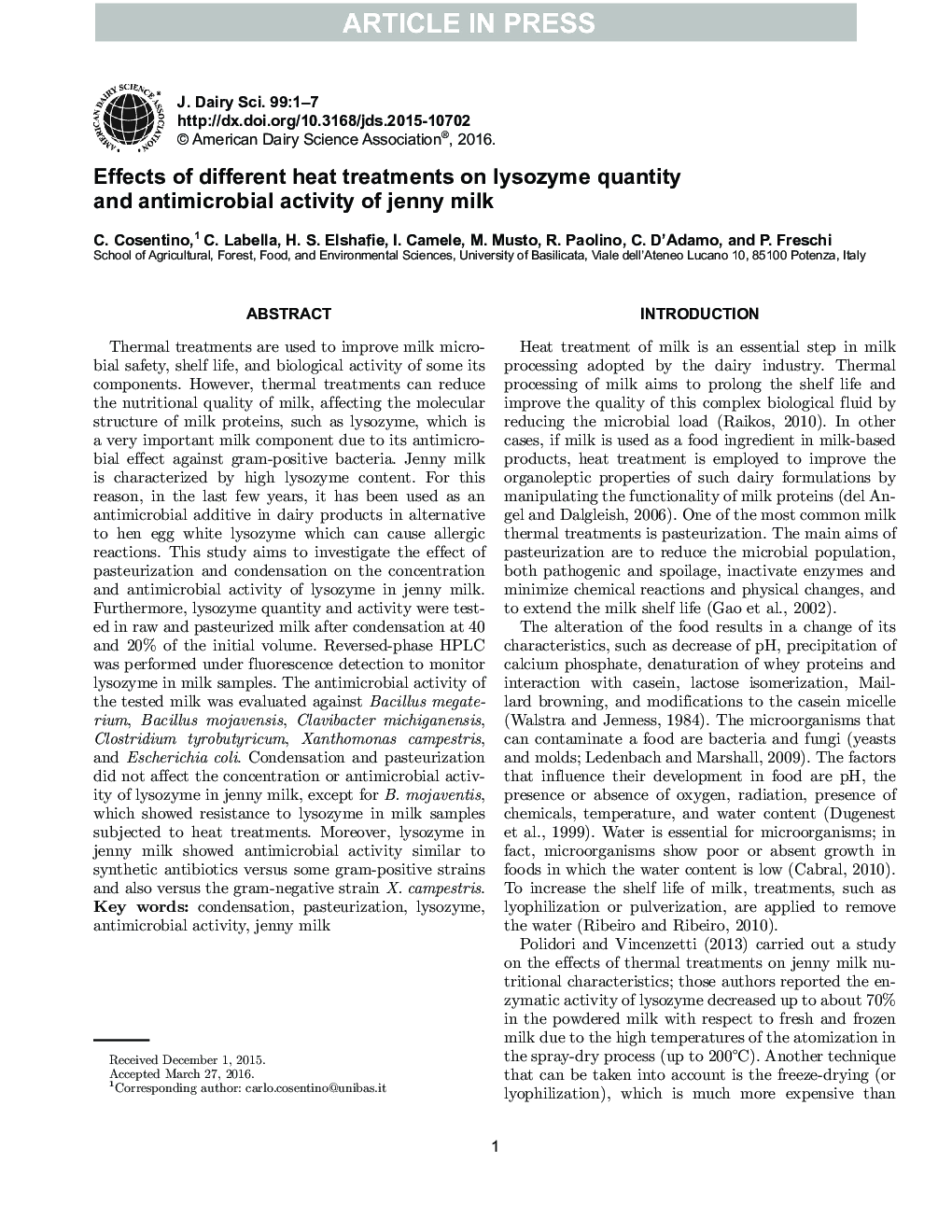| Article ID | Journal | Published Year | Pages | File Type |
|---|---|---|---|---|
| 10973616 | Journal of Dairy Science | 2016 | 7 Pages |
Abstract
Thermal treatments are used to improve milk microbial safety, shelf life, and biological activity of some of its components. However, thermal treatments can reduce the nutritional quality of milk, affecting the molecular structure of milk proteins, such as lysozyme, which is a very important milk component due to its antimicrobial effect against gram-positive bacteria. Jenny milk is characterized by high lysozyme content. For this reason, in the last few years, it has been used as an antimicrobial additive in dairy products as an alternative to hen egg white lysozyme, which can cause allergic reactions. This study aimed to investigate the effect of pasteurization and condensation on the concentration and antimicrobial activity of lysozyme in jenny milk. Furthermore, lysozyme quantity and activity were tested in raw and pasteurized milk after condensation at 40 and 20% of the initial volume. Reversed-phase HPLC was performed under fluorescence detection to monitor lysozyme in milk samples. We evaluated the antimicrobial activity of the tested milk against Bacillus megaterium, Bacillus mojavensis, Clavibacter michiganensis, Clostridium tyrobutyricum, Xanthomonas campestris, and Escherichia coli. Condensation and pasteurization did not affect the concentration or antimicrobial activity of lysozyme in jenny milk, except for B. mojaventis, which showed resistance to lysozyme in milk samples subjected to heat treatments. Moreover, lysozyme in jenny milk showed antimicrobial activity similar to synthetic antibiotics versus some gram-positive strains and also versus the gram-negative strain X. campestris.
Related Topics
Life Sciences
Agricultural and Biological Sciences
Animal Science and Zoology
Authors
C. Cosentino, C. Labella, H.S. Elshafie, I. Camele, M. Musto, R. Paolino, C. D'Adamo, P. Freschi,
